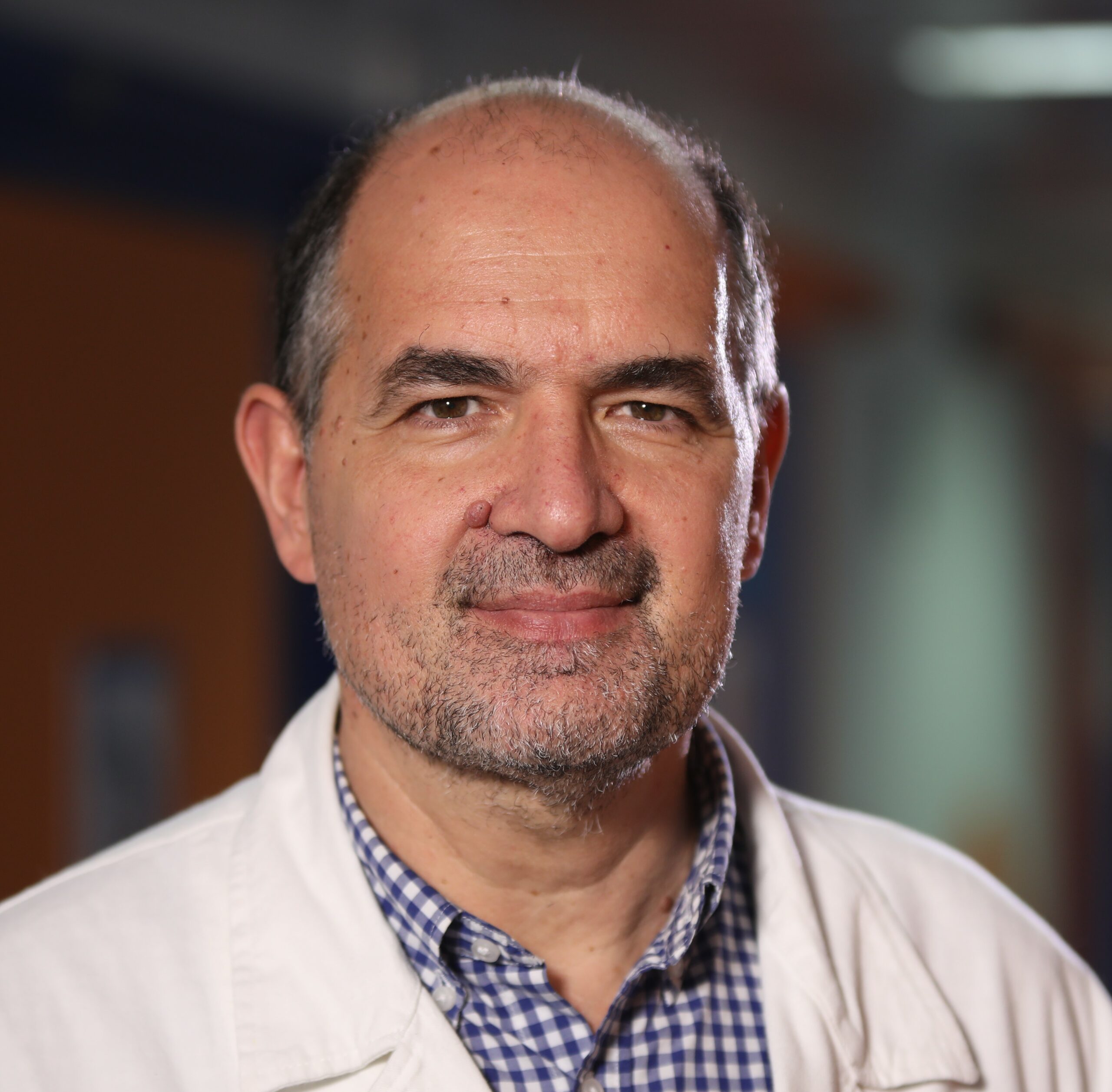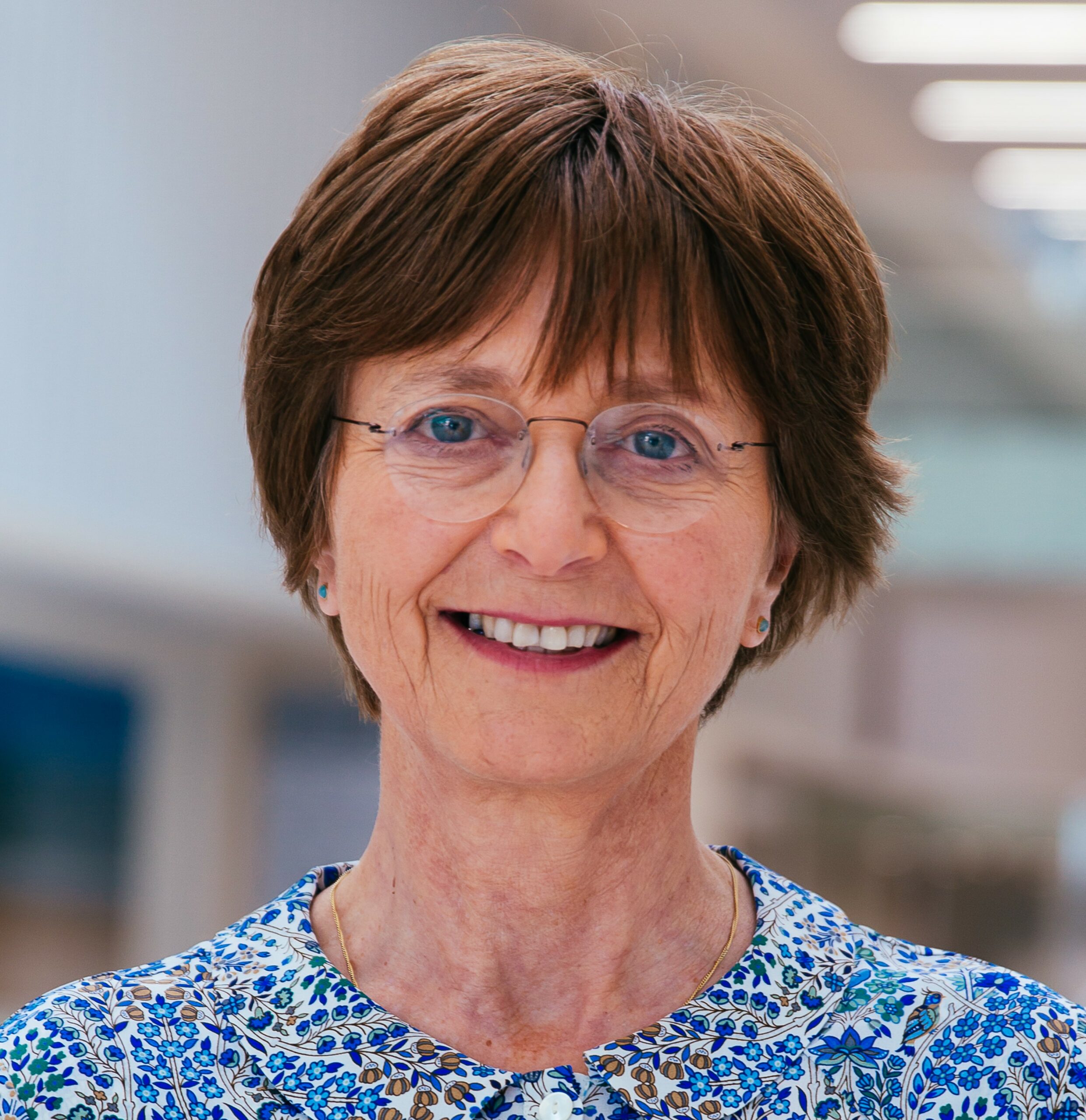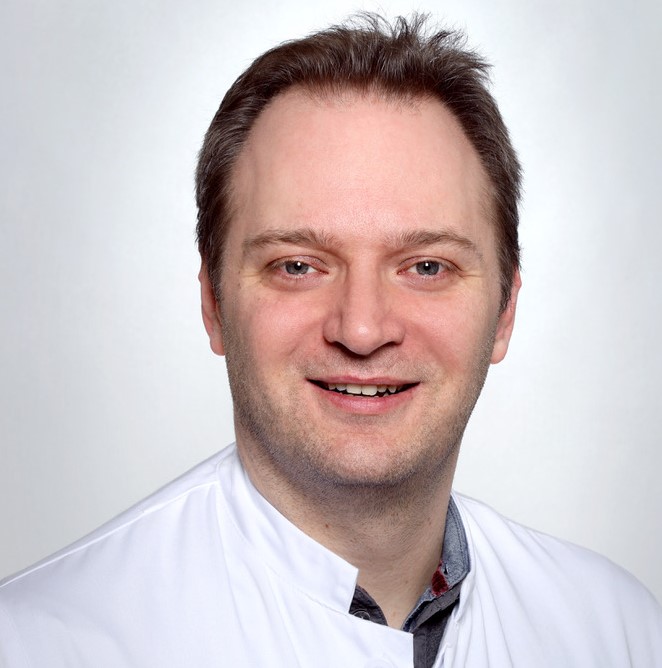touchPANEL DISCUSSION Considerations for the selection of disease-modifying treatments in SMA: A case-based discussion
Three SMA experts use patient case studies to discuss factors influencing treatment decision-making with approved SMA therapies.

Prof. Eugenio Mercuri
Policlinico Universitario Agostino Gemelli, Rome, Italy
CHAIR
Panelists:
Introduction and overview of approved therapies for SMA
Prof. Eugenio Mercuri introduces the panel and provides an overview of the mechanisms of action, indications and adverse events for the three approved disease-modifying agents for SMA.
view bio and disclosures 1/4 Next ChapterCase study 1: Treatment selection for a 3-month-old infant
The expert panel discusses factors influencing the choice of therapeutic agent for a symptomatic 3-month-old infant with SMA, including the practicalities of treatment administration and potential adverse events that must be considered.
view bio and disclosures 2/4 Next ChapterCase study 2: Treatment selection for a 3-year-old child
The expert panel discusses benefit–risk profiles for SMA treatments in the context of a 3-year-old child, with a focus on treatment goals and the importance of managing parental expectations regarding outcomes.
view bio and disclosures 3/4 Next ChapterCase study 3: Treatment selection for an 18-year-old young adult
The expert panel discusses treatment choices for a young female adult with SMA. They cover the importance of understanding the patient’s personal circumstances as part of establishing a treatment choice, and the role of real-world evidence for predicting treatment outcomes and understanding potential treatment risks.
view bio and disclosures 4/4 Take CE/CME TestOverview & Learning Objectives
Overview
In this activity, leading experts in spinal muscular atrophy (SMA) review the range of factors influencing treatment decision-making in the context of three different patients with SMA—an infant, a toddler and a young adult. They cover benefit–risk profiles for the approved treatments, relevant practical considerations for each patient context and factors to discuss with the parents/patient as part of the shared treatment decision-making process.
This activity is jointly provided by USF Health and touchIME.
Target Audience
This activity has been designed to meet the educational needs of neurologists and paediatric neurologists who are involved in the management of spinal muscular atrophy.
Disclosures
USF Health adheres to the Standards for Integrity and Independence in Accredited Continuing Education. All individuals in a position to influence content have disclosed to USF Health any financial relationship with an ineligible organization. USF Health has reviewed and mitigated all relevant financial relationships related to the content of the activity. The relevant relationships are listed below. All individuals not listed have no relevant financial relationships.
Faculty
Prof. Eugenio Mercuri discloses: Advisory board or panel fees from Biogen, Novartis, Roche and Scholar Rock. Grants/research support from Biogen.
Prof. Nathalie Goemans discloses: Advisory board or panel fees from Novartis. Speaker’s bureau fees from Biogen, PI Healthcare and Roche.
Prof. Tim Hagenacker discloses: Advisory board or panel fees from Alexion, Alnylam, Biogen, Hormosan, Roche, Sanofi-Genzyme and TTR. Consultant fees from Biogen and Roche. Grants/research support from Biogen, Novartis and Roche. Speaker’s bureau fees from Alexion, Biogen, Hormosan, Novartis and Roche.
Content reviewer
Angela M Hill, PharmD has no financial interests/relationships or affiliations in relation to this activity.
Touch Medical Director
Hannah Fisher has no financial interests/relationships or affiliations in relation to this activity.
USF Health Office of Continuing Professional Development and touchIME staff have no financial interests/relationships or affiliations in relation to this activity.
Requirements for Successful Completion
In order to receive credit for this activity, participants must review the content and complete the post-test and evaluation form. Statements of credit are awarded upon successful completion of the post-test and evaluation form.
If you have questions regarding credit please contact cpdsupport@usf.edu.
Accreditations
Physicians
This activity has been planned and implemented in accordance with the accreditation requirements and policies of the Accreditation Council for Continuing Medical Education (ACCME) through a joint providership of USF Health and touchIME. USF Health is accredited by the ACCME to provide continuing medical education for physicians.
USF Health designates this enduring material for a maximum of 0.75 AMA PRA Category 1 CreditTM. Physicians should claim only the credit commensurate with the extent of their participation in the activity.
The European Union of Medical Specialists (UEMS) – European Accreditation Council for Continuing Medical Education (EACCME) has an agreement of mutual recognition of continuing medical education (CME) credit with the American Medical Association (AMA). European physicians interested in converting AMA PRA Category 1 CreditTM into European CME credit (ECMEC) should contact the UEMS (www.uems.eu).
Advanced Practice Providers
Physician Assistants may claim a maximum of 0.75 Category 1 credits for completing this activity. NCCPA accepts AMA PRA Category 1 CreditTM from organizations accredited by ACCME or a recognized state medical society.
The AANPCP accepts certificates of participation for educational activities approved for AMA PRA Category 1 CreditTM by ACCME-accredited providers. APRNs who participate will receive a certificate of completion commensurate with the extent of their participation.
Date of original release: 28 April 2022. Date credits expire: 28 April 2023.
If you have any questions regarding credit please contact cpdsupport@usf.edu.
Learning Objectives
After watching this activity, participants should be better able to:
- Recall the licensed indications for available disease-modifying therapies for SMA
- Discuss factors which may impact treatment selection for individual patients with SMA
- Summarize benefit–risk profiles for approved treatments with respect to different SMA phenotypes at the time of diagnosis and into the future
Faculty & Disclosures

Prof. Eugenio Mercuri
Policlinico Universitario Agostino Gemelli, Rome, Italy
Prof. Eugenio Mercuri is Professor of Pediatric Neurology and Head of the Pediatric Neurology Unit at the Policlinico Universitario Agostino Gemelli, Rome, Italy.
Prof. Mercuri helped establish a paediatric neuromuscular programme at the Policlinico at the Università Cattolica del Sacro Cuore. His areas of interest include neonatal neurology and the clinical and molecular/genetic aspects of childhood neuromuscular diseases. He has particular interest in improving multidisciplinary care and establishing standards of care for congenital muscular dystrophies and myopathies. His group has published extensively on the natural history of Duchenne muscular dystrophy and SMA, and on approved therapies for these diseases.
Prof. Mercuri reviews for a number of national and international funding organizations and journals. He also serves on the editorial boards for a number of journals, including Neuromuscular Disorders, Annals of Neurology and Developmental Medicine & Child Neurology.
Prof. Eugenio Mercuri discloses: Advisory board or panel fees from Biogen, Novartis, Roche and Scholar Rock. Grants/research support from Biogen.

Prof. Nathalie Goemans
UZ Leuven, Leuven, Belgium
Prof. Nathalie Goemans is Emeritus Head of the Neuromuscular Reference Centre for Children at UZ Leuven in Leuven, Belgium.
Prof. Goemans has a special interest in patient/disease registries aimed at describing current natural history, improving standards of care and providing post-marketing data for therapeutic agents.
She is involved in both translational and clinical research into neuromuscular disorders, including the development of outcome measures to assess the effectiveness of interventions for these diseases. She is also a principal investigator in a number of registration-directed, industry-sponsored, phase I, II and III clinical trials exploring the safety and efficacy of new compounds for Duchenne muscular dystrophy and SMA.
Prof. Nathalie Goemans discloses: Advisory board or panel fees from Novartis. Speaker’s bureau fees from Biogen, PI Healthcare and Roche.

Prof. Dr. med. Tim Hagenacker
Essen University Hospital, Essen, Germany
Prof. Tim Hagenacker is Head of the Neuromuscular Section of the Department of Neurology at Essen University Hospital in Essen, Germany.
Prof. Hagenacker heads a basic research group investigating diseases of the peripheral nervous system and neuropathic pain. His clinical focus is on neuromuscular junction disorders, amyotrophic lateral sclerosis, myositis, SMA and clinical neurophysiology. He has numerous publications in these areas.
Prof. Tim Hagenacker discloses: Advisory board or panel fees from Alexion, Alnylam, Biogen, Hormosan, Roche, Sanofi-Genzyme and TTR. Consultant fees from Biogen and Roche. Grants/research support from Biogen, Novartis and Roche. Speaker’s bureau fees from Alexion, Biogen, Hormosan, Novartis and Roche.

Register to touchNEUROLOGY for FREE
- Peer-reviewed journals and expert opinions
- Interactive CME and e-learning modules
- Video conference highlights

